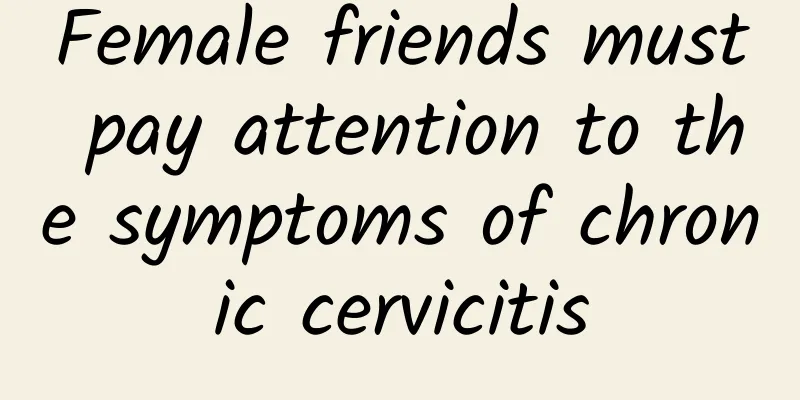What to do if infection occurs after abortion

|
Abortion is the most common way for modern women to terminate pregnancy. With the development of medical technology, although the pain of surgery has been reduced, the harm to the body after abortion is still huge, especially for patients with postoperative infection. So, what should we do if infection occurs after abortion? 1. Although abortion is a simple operation with a quick recovery, complications are unavoidable. The most common is infection after abortion, which is mostly caused by factors such as sexual history before the operation or poor disinfection during the operation. Once it occurs, two or three antibiotics should be used early, in sufficient quantities, and in combination. 2. Pay attention to rest. After the operation, the first thing women should pay attention to is to get enough rest. This is because the operation will cause a certain degree of damage to the endometrium of women, and the endometrium needs some time to recover. Therefore, do not do physical labor within two weeks after the operation. After two weeks, you can gradually do some small amounts of exercise. It should also be noted that you cannot have sexual intercourse within one month after the operation. 3. Reasonable diet. Women after surgery need to eat soft and easily digestible foods as much as possible, and also pay attention to supplementing vitamins, proteins and other elements. Women after surgery should try not to eat spicy and irritating foods, because spicy and irritating foods have a great impact on physical recovery. 4. Keep the vulva clean. After the operation, since the female uterus has not yet completely closed, you must pay attention to keeping the vulva clean. When cleaning the vulva, be careful to avoid dirty water entering the vagina. Underwear should be changed frequently and not washed with other clothes. Try to wash them separately. Postoperative infection after abortion can also cause adhesions of the cervix and uterine cavity. This is caused by postoperative injury and infection, which manifests as postoperative amenorrhea or scanty menstruation, periodic lower abdominal distension and pain, and secondary infertility. If adhesions are not treated in time, they will block the movement of eggs and sperm and the implantation of fertilized eggs, eventually leading to infertility. Therefore, once infection occurs, you must go to the hospital for regular treatment in time, and avoid blindly taking medication. |
<<: Can chronic dysmenorrhea be cured?
>>: What methods are used for differential diagnosis of dysmenorrhea?
Recommend
How to best treat pelvic effusion?
Pelvic effusion may make many women feel troubled...
Do you know the symptoms of uterine fibroids?
What symptoms of uterine fibroids do you know? Th...
Can Chunshentang cure vulvar leukoplakia?
Chunshentang's treatment may have a certain a...
Learn about effective care for vulvar leukoplakia
In recent years, due to various reasons, the inci...
Patients with vulvar leukoplakia should choose their treatment method in time
Vulvar leukoplakia is a very common disease among...
What are the precautions after painless abortion? Pay attention to these 3 points
This kind of painless abortion surgery has very m...
What is the real cause of threatened miscarriage?
Adult women under 35 years old are in the golden ...
Introduce the advantages of painless abortion in detail
Nowadays, many women may choose abortion after an...
What are uterine fibroids? How to treat uterine fibroids?
Uterine fibroids are a common gynecological disea...
Eat smart to lose weight, and don’t gain weight by eating at all-you-can-eat restaurants? Nutritionist shares 4 dining tips to help you eat smart without getting fat
As the epidemic situation gradually eases, the op...
What are the dietary health care methods for congenital absence of vagina?
Congenital absence of vagina is most commonly see...
Is yoga good for adenomyosis? Are there any other treatments?
Adenomyosis is a disease that cannot be ignored. ...
Light blood in urine after menopause
After menopause, light blood in urine may be a si...
What causes cervical erosion?
Cervical erosion usually refers to ectopic column...
Qingming Festival "stuffing" trap many commercially available spring cakes = 2 bowls of rice
The Qingming Festival holiday is coming soon. In ...









